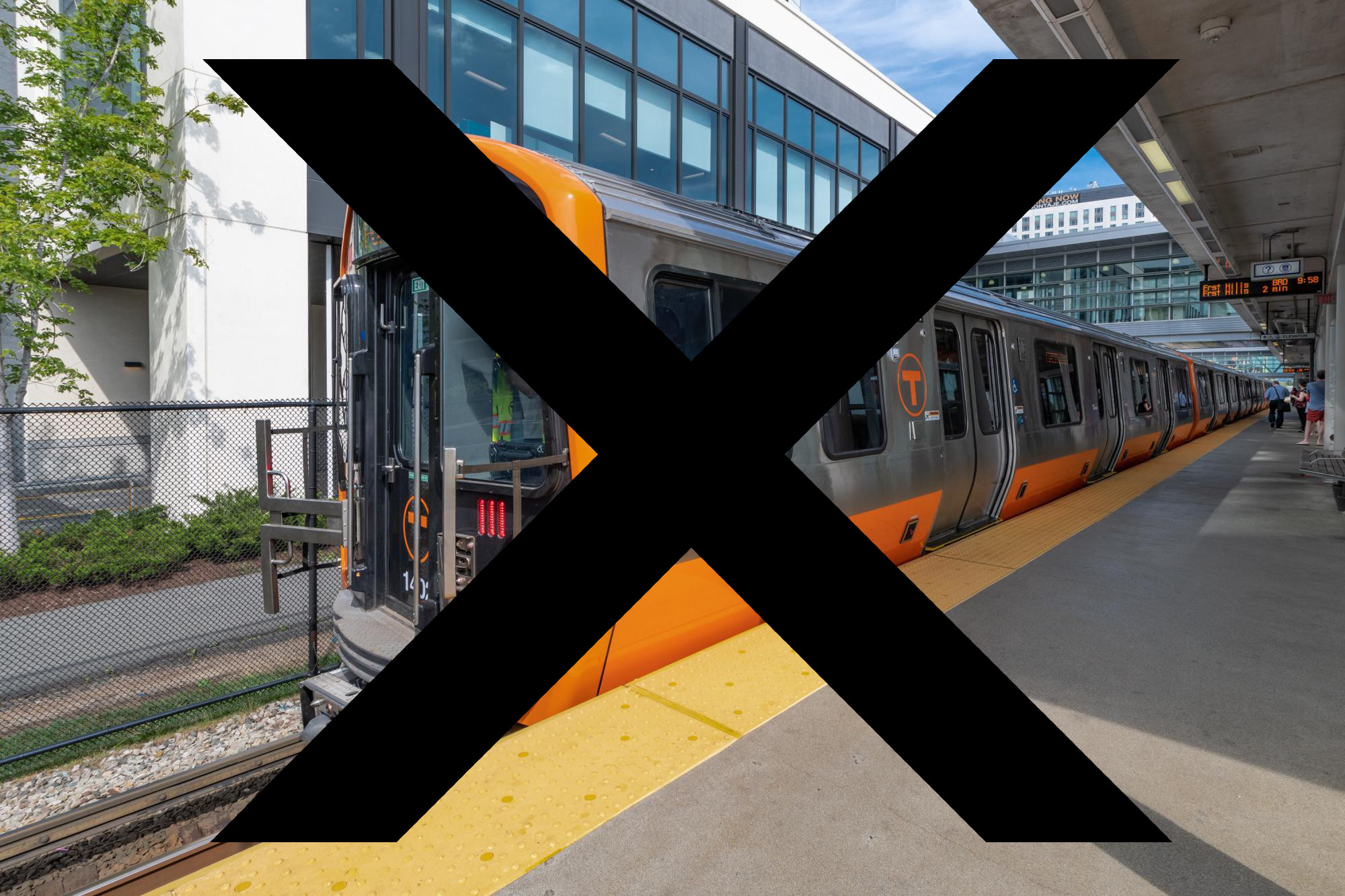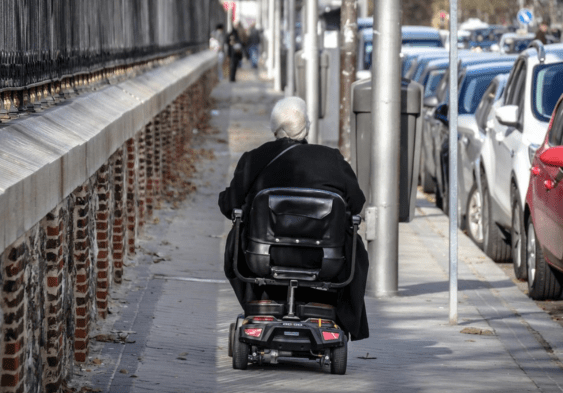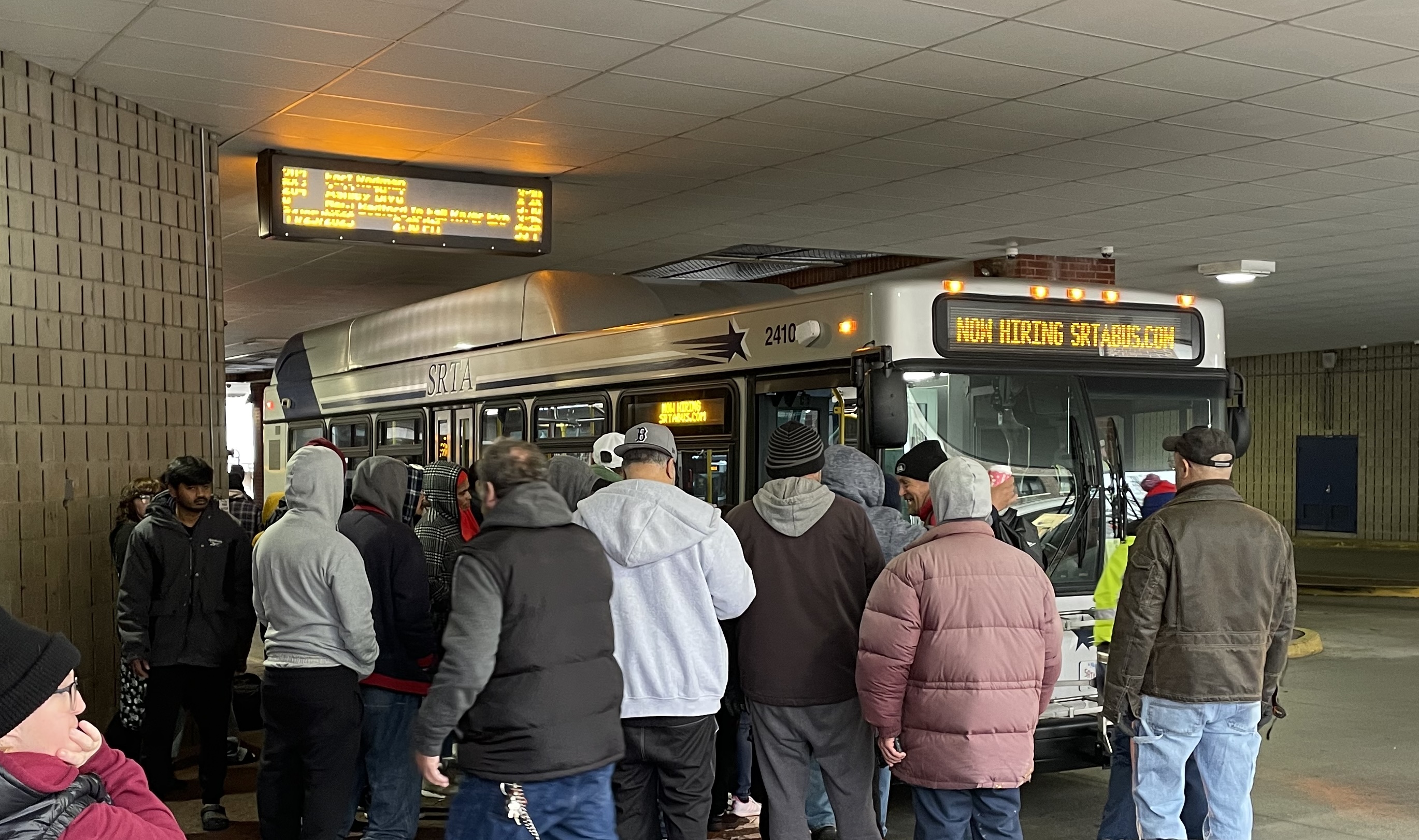The MBTA will take the unprecedented step of shutting down the entire Orange Line subway for 30 days in order to address a large and growing backlog of safety hazards and maintenance needs on its tracks.
“Today we’re announcing plans to accelerate major track and maintenance work on the Orange Line during a 30-day shutdown of the entire line,” Massachusetts Governor Charlie Baker told reporters at a press conference at the Wellington Orange Line station on Wednesday afternoon.
The closure will begin at 9 p.m. on Friday, August 19, and service is scheduled to resume at 5 a.m. on Monday, Sept. 19.
Baker and MBTA General Manager Steve Poftak stressed that the closure would allow work crews to fully replace worn-out tracks to eliminate long-standing speed restrictions and slow zones near Jackson Square, Haymarket, and between the Tufts and Back Bay stations, where a recent federal safety inspection cited "excessive wear and defects."
"The 30 days of 24-hour access to rebuild and replace tracks across this line will replace what would have taken 5 full years of weekend and evening diversions, and the T will take full advantage of this to deliver far better service and a more modern infrastructure for its riders," promised Governor Baker.
Uncertain alternatives for 100,000 riders
The Orange Line is the T's second-busiest rapid transit line. Ridership remains about 50 percent below pre-pandemic levels, but the subway has still been carrying over 100,000 riders every weekday this spring and summer.
According to passenger survey data from CTPS, a regional planning agency, people of color will be disproportionately affected by the shutdown.
Across the entire MBTA rapid transit network, about 1 in 10 riders are Black, according to pre-pandemic surveys. But 1 in 3 riders who use the Jackson Square Orange Line station are Black, and at the Roxbury Crossing, Ruggles, and Forest Hills stations, 1 in 4 riders are Black. Black and Asian riders also make up a higher-than-average proportion of riders at the Community College, Malden Center, and Wellington stations.
The shutdown will extend into September, a time when transit ridership typically surges as students return to schools and local universities.
On Wednesday morning, the MBTA convened a special meeting of its board of directors with a single agenda item: a discussion and vote on a $27 to $37 million contract for replacement bus shuttle service with A Yankee Line, Inc., a charter bus company.
Only one MBTA board member had any questions for Poftak about the closure or the contract. Board member Mary Beth Mello asked whether shuttle riders would be charged any fares, and whether they could opt for parallel service on the commuter rail system.
Poftak responded that riders would be able to show their transit passes or CharlieCards to ride the commuter rail within zones 1 and 2 from Forest Hills, Ruggles, Back Bay, South Station, North Station, and Malden Center. He also said that a mothballed commuter rail platform at the Oak Grove station would be re-activated for Haverhill Line trains, which run every 45 minutes, for the duration of the closure.
"On the Orange Line we're planning for 160 (shuttle) buses at peak, and working with our municipal partners to find the most efficient ways to route those buses," Poftak told board members at the meeting on Wednesday morning.
But at the press conference at Wellington a few hours later, Poftak revealed that the agency still hasn't worked out crucial details for how those bus shuttles would operate on Boston's congested streets.
"We’re discussing with (the City of Boston) what do we need to do to make sure the buses travel efficiently and that we minimize the impact, but that is, um, still more to come on exactly what the course of that diversion will be," said Poftak. "I don’t have a prediction, but one of the things we want to do is make sure we have an efficient path for our buses so that we can provide appropriate service to our customers."
In prior shutdowns that require major shuttle bus diversions, Boston Transportation Department officials have said that they need more than two weeks' notice to plan bus-priority lanes, which require careful attention to details like traffic signal timing, turn lanes and loading zones, and accessibility considerations under the Americans with Disabilities Act.
The Orange Line typically carries about 8 times as many riders as the T's busiest bus route, the 28, which runs every 6 to 10 minutes and carries about 12,000 riders per day.
Governor promises elimination of slow zones, more new trains
The full-line closure will replace several smaller Orange Line service disruptions that had already been on the horizon for this summer.
Last week, the T abruptly cancelled a planned month-long closure of the northern end of the Orange Line, from Oak Grove to Wellington, just two days before the closure was to take effect.
The agency also needs to complete additional track work between Tufts and Back Bay stations to satisfy special directives from the Federal Transit Administration.
And there's still more demolition work that needs to be done to get rid of the beleaguered Government Center Garage, which straddles over the Green and Orange Line tunnels in downtown Boston. That construction project has already unexpectedly disrupted Orange and Green Line services twice so far this year.
At Wednesday's press conference, both Governor Baker and General Manager Steve Poftak tried to emphasize how much better off riders will be when the line re-opens in September.
The planned work “will result in substantially improved service for riders, fewer delays, and faster Orange Line trips," promised Governor Baker. "At the end of those 30 days, we also anticipate that the entire Orange Line will have a fleet made up of new cars... this short-term work will result in long-term benefits, on a much shorter timeframe."
Last week, Boston Mayor Michelle Wu appeared on WBUR's Radio Boston talk show, where, in a discussion about last Monday's early-morning Orange Line fire, she advocated for the T to tackle its safety issues more comprehensively to "do it all in one sweep" instead of attempting smaller-scale fixes during nighttime and weekend closures.
"Getting it done would then free up resources at the T to focus on improving other parts of it," said Mayor Wu. "I know that's painful because it will it would be tremendously disruptive. But we are at that point where prolonging this will make it worse and continue to bring about safety issues."
MBTA board rubber-stamps closure plan
At Wednesday morning's MBTA board meeting, which lasted about 15 minutes, only Mary Beth Mello (asking about alternative commuter rail service) had any questions for the T's leadership about the planned shutdown.
Before calling for a vote for the proposed shuttle bus contract, Board Chair and Mayor of Quincy Thomas Koch compared the disruption to the 2-year closure of the Wollaston Red Line station, which he called a success.
"I'm just thrilled that we continue to grab the bull by the horns to move forward and make the improvements necessary," said Koch.
The board then passed the shuttle bus contract unanimously, and adjourned.






